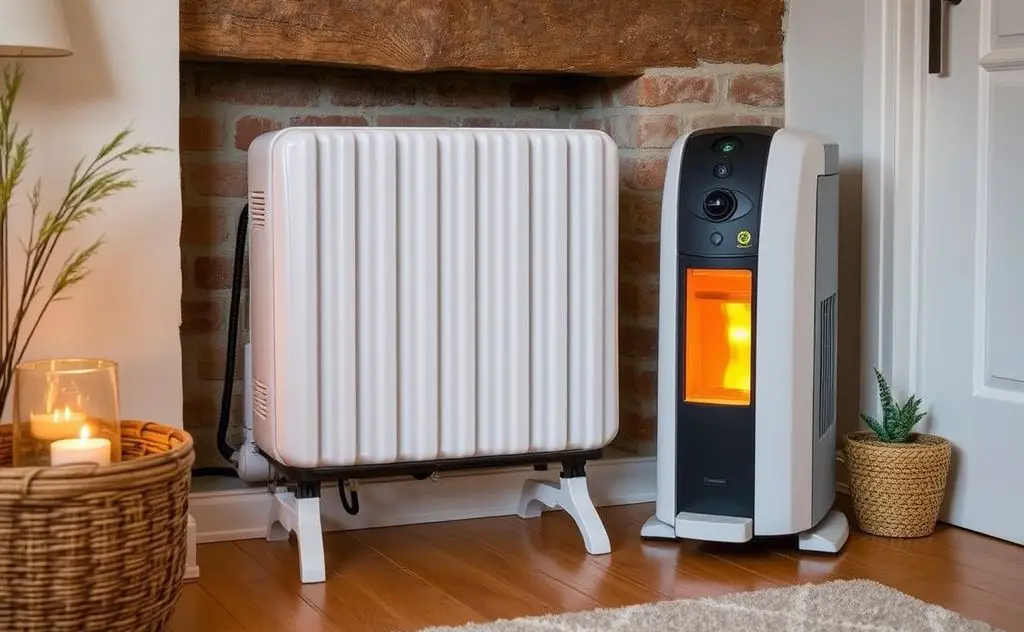Gas heaters can be more energy efficient by using high-efficiency models, maintaining regular service, and optimizing thermostat settings for consistent temperatures.
Gas heaters provide reliable warmth, but they can waste energy without proper maintenance and smart usage. Implementing these strategies will reduce your energy bills while keeping your home comfortable.

1. Upgrade to a High-Efficiency Model
Modern gas heaters offer significantly better efficiency than older units. Look for these features:
- ENERGY STAR certification (≥ 0.81 UEF for <55 gal tanks, ≥ 0.86 UEF for larger)
- Condensing technology that recovers waste heat
- Sealed combustion systems that prevent heat loss
According to ENERGY STAR, upgrading to an efficient model may qualify you for federal tax credits up to $2,000.
Best High-Efficiency Options
Consider these efficient alternatives:
| Type | Efficiency | Savings Potential |
|---|---|---|
| Tankless | 90-98% | 30-50% |
| Condensing | 90-95% | 25-35% |
| Hybrid | 3.5+ UEF | 60%+ |

2. Optimize Thermostat Settings
Proper temperature control makes a major difference:
- Set to 68°F when awake, lower when sleeping/away
- Install a smart thermostat for automatic adjustments
- Use zoning to heat only occupied areas
Each degree lowered saves 1-3% on heating costs.
3. Improve Home Insulation
Prevent heat loss through these key areas:
Critical Insulation Points
- Attic (R-38 minimum)
- Walls (R-13 to R-21)
- Floors above unheated spaces
- Basement/crawlspace walls
Proper insulation can reduce heating needs by 20%.
4. Seal Air Leaks
Common leakage points to address:
- Windows and doors
- Electrical outlets
- Plumbing penetrations
- Recessed lighting
- Attic hatches
Use caulk, weatherstripping, or spray foam for best results.
5. Maintain Your Heater Regularly
Annual maintenance improves efficiency by 5-15%:
Essential Maintenance Tasks
- Clean or replace air filters monthly
- Inspect and clean burner assembly
- Check heat exchanger for cracks
- Lubricate moving parts
- Verify proper venting
Consider professional plumber services for complex maintenance.
6. Upgrade Ductwork
Poor duct design wastes 20-30% of heated air:
- Seal all joints with mastic paste
- Insulate ducts in unconditioned spaces
- Ensure proper sizing for your system
- Balance airflow to all rooms
7. Use Ceiling Fans Strategically
Reverse fan direction in winter to push warm air down:
- Clockwise rotation at low speed
- Focus on rooms with high ceilings
- Can reduce heating needs by 10%
8. Install Heat Reflectors
Place reflective panels behind radiators or baseboard heaters:
- Reflects heat back into room
- Simple DIY installation
- Improves efficiency by 5-10%
9. Take Advantage of Solar Gain
Maximize free heat from sunlight:
- Open south-facing curtains during day
- Close at night to retain heat
- Consider solar window heaters for additional benefit
10. Explore Rebates and Incentives
Many utilities offer significant savings:
- $75-$1,500 rebates on efficient water heaters
- Federal tax credits up to $3,200 annually
- Local incentives for insulation/weatherization
Check SoCalGas rebates as an example of available programs.
